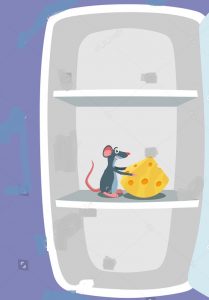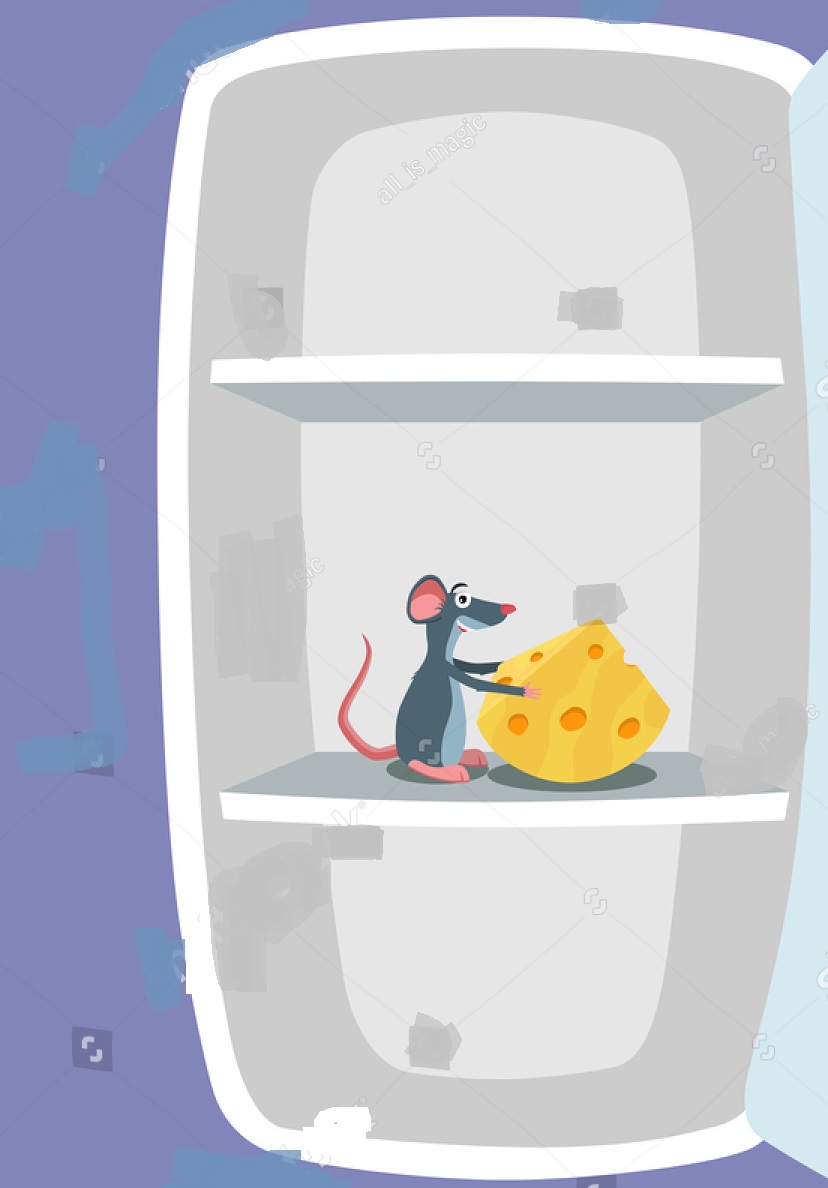 Film and Horse Racing Writer —-> David D. Mattia <——Explains Why Aliens Are Probably Not Really Aliens and Why It’s a Waste of Time to Think About Them.
Film and Horse Racing Writer —-> David D. Mattia <——Explains Why Aliens Are Probably Not Really Aliens and Why It’s a Waste of Time to Think About Them.
READ ABOUT THE AUTHOR HERE — David D. Mattia
(January 17, 2017) I watched a video on YouTube about what will happen to the earth if and when aliens arrive on earth — and it was stupid. The video refers to “THEM” as THEY and to “US” as WE — and it was dumb beyond dumb.
Let me explain WHY it’s simplistic and stupid to believe in ALIENS the way we’ve been conditioned to believe in them. The finally irony herein is the strange fact that aliens themselves, or the forces that create aliens, might be manipulating our perception of aliens who might exist all round us in plain sight, but we’re neither equipped to see, nor to understand, one iota about their presence. It sounds very complicated, I know, but I promise you that it is not.
99,999999999999999999999% of the whole alien thing is stupid because if THEY can get HERE, they will already have acquired complete knowledge of everything they need to know about us. THEY will never simply stumble upon us.
They’ll either come because WE will create them, or THEY will feel that we’ve reached a level whereby we can learn some new tricks and are ready to rise up to a higher level of consciousness.
There will be nothing entirely magical or enchanting about them. Like kids on Christmas morning, we will get tired of their toys and technology within 100 years, and within 2,000 years, their visit will be viewed as an illusion or some kind of strange phenomenon of the mind — the way we look at people of ancient times who had visions and encounters with angels and other stuff like that.
The knowledge and technology of an “alien” civilization will be beyond all human comprehension, which is partly why it’s safe to assume that THEY are already here. Humans, however, are just too limited on so many levels — billions of levels – to understand THEM or to even recognize THEM as they weave their way through our existence.
WE don’t even know who we ourselves ARE or why we’re here. How then can we understand beings who might not even be able to show themselves without perhaps using some kind of uncloaking technology that can be only partially deciphered by our brains? Perhaps this is why we sleep and dream. Maybe, in dreams, we come closer to them. Consciousness, for now, is probably more of a hindrance than a help when it comes to communicating with an alien being or creative force.
Let’s think about something as plain as water, H2O, the substance that covers most of our world. Water could very well be an alien creature. It could be our guardian or landlord or even our ultimate mother. Some have theorized that water is a super computer beyond all imaginings, and that it stores every bit of information that there ever was or ever will be. This kind of explains why the earth must pass through the icy remnants of a comet’s tail at regular intervals. We get new water with new information with each go-around.
Sounds crazy, right. It’s not. Everything earthly seems to happen all too easily and too neatly, and it’s annoyingly dull to explain it all away with mathematical formulas and physics. It’s simplistic. Some of the science we have discovered or invented makes our existence seem almost like a rehearsed alibi we spout out when we feel trapped or endangered. It’s too down pat. This explains why astronomers and physicists have gradually become TV celebrities and why so many aspects of science have historically started out with great spectacle and curiosity. Think about that for a moment.
It’s easy to say that one day there was nothing, and the next day there was a huge explosion, and then there was everything — or at least the future building blocks of everything. Think about the paradoxical lunacy of believing that one NON-DAY there was NOTHING and the next DAY-DAY there was EVERYTHING.
If there was NOTHING – where did it come from…and how did it turn into EVERYTHING? How did one non-day become a day-day the next day? Science will tell you that this is a childish or religious way to look at the “universe.” Some will call it, “magical thinking.” The truth, however, is that you don’t need to be religious to wonder about the haunting question of how nothing became everything.
It wasn’t too long ago when people believed that lumps of mud became tadpoles. Great and learned men of science explained things away like that in ancient times, and for ages spontaneous generation was an accepted belief. Why should we think we’re any more learned?
Think about a mouse living behind an old and unsteady refrigerator that’s kept from rocking back and forth by a copy of Hamlet slid under one corner. The mouse who lives there gets its warmth from the motor of the refrigerator. It gets its water from the condensation of water on the coils. It makes it nests from the pages of Shakespeare’s book, and it eats from the crumbs it gathers in and around the refrigerator. It exists in a somewhat welcoming universe of its own, and life is good.
Does the mouse know that its home is a refrigerator? No.
Does the mouse understand the means by which a refrigerator works or is made? Of course not.
Does it know that there is heat there? Yes.
Does it know why there is heat or how heat is created? No.
Does it know that electric motors give off heat? No, but it figures out how a certain humming noise in the distance might also be a source of warmth.
Does it understand the basics of why electricity can create heat? No.
Can you teach your guest mouse how to make electricity? No.
Does it know why there is water there? No.
Does it know that water is made of hydrogen and oxygen? No.
Does it understand why water condenses onto coils that are cooled? No.
Does it know that it’s building its nest with something that we call a book? No.
Does it know that some pages have black dots that spell out a story? No.
Does it know that Shakespeare was a great writer? No.
Does it not know about Shakespeare because it can’t read? Complex no.
Could you teach a mouse to read? No.
Does it know what food is? No, but it has an instinctive need to find it.
Does it know where the food comes from? No, but it learns how to find it.
Does it know that the crumb food on the floor is made in a factory or grown on a farm? No.
Does it know what a farm is or what it means to farm something that becomes a dropped Cheerio? No.
Does a Cheerio dropped on the floor make a mouse happy? No.
Are you starting to get the picture? No.
You see, WE are that mouse, and all of the NO answers can be turned to YES answers if you had, say, 4 billion years to slowly commune with the mouse and alter its intelligence and perception little by little by little by little.
That’s where we humans are right now. WE are the mouse under the refrigerator — except that the mouse is far more aware of what’s really going in their world than we we are in ours. From our perspective, the mouse knows nothing, but he doesn’t have to. His universe provides for him, and when it doesn’t, he dies. He doesn’t fear death and he doesn’t understand the misery of his life as a mouse. From a human perspective, he is just a mouse.
Think about this. We have a sun that gives us just the right amount of heat, and an atmosphere, and strange “forces” that keep us all from drifting out into space — or what we perceive as space. Words like “gravity” and “forces” make explainable things seem easy to understand, but they might as well be imaginary words because the only science that explains them is the same science that invented them. It’s no wonder that “The Force” is a Star Wars science fiction creation.
Yes, yes, yes, there are great learned men who tell us why and how the sun makes that heat and how quantum physics explains the various forces in our universe – our own version of an old refrigerator – but it’s all too easily and flippantly explained away with physics and other man made mumbo-jumbo by the same people who invented the mumbo-jumbo that describes why things do what they do.
It’s all too easily explained as facts of “science,” but science is usually arrogant and snotty.
If you question accepted science, you’re ordained as an idiot and you’re thrown onto the scrap heap of religious believers. Why does that automatically happen? What force exists in our refrigerator that compels some of us to believe in a divine universe and others to reject such an idea? Why has every civilization created gods and monsters to worship or fear, but now there is a trend that seems to be moving humans away from these beliefs?
The answer is easy. We create or imagine or worship things, because we don’t understand who or what we are. As we create more science and invent more explanations, however, the human collective consciousness starts to drift away from gods and monster. Do people who believe in gods and monsters – good and evil – hold back the progress of the great and learned scientists who don’t – or is it the other way around?
It’s a lot like the old story about the dog who is so enamored with his owners that he views them as gods. That dog lives in the same house with a cat who is so enamored with these same owners that he views them as minions who must realize that he, the cat, is a god.
Yes, that’s a cute and mindless little chestnut, but it makes more sense than one might think.
It’s true that we have come a long way in the science of medicine, but think about why that might be. We need medicine to improve ourselves. Whose to say that living longer or healthier is an improvement anyway? We’ve also come a long way in all aspects of technology, but everything we create is something we need for ourselves and our refrigerator.
Do you see what just happened? In three paragraphs, we moved ourselves ahead billions of years — but we still don’t know anything. We don’t know anything at all.
We believe our great thinkers because they are great learned people, much like the great thinkers who said that mud turns into frogs. Or maybe we’re like those great and learned doctors who drained blood from George Washington to let out the “bad vapors” that caused him to fall ill. George Washington didn’t argue with the doctors who were bleeding him white because THEY were great scientists who possessed vast knowledge.
Neil deGrasse Tyson, as charismatic and cool as you might think he is, knows about 1 millionth of a percentage more about the universe than George Washington’s doctors did. Take my word for it. Don’t question his science — you’ll be labeled as a Creationist or a moron….or both.
Do you see the stupidity?
Let’s take this a step further.
When George Washington stood out on the steps of his home in Mount Vernon, EVERYTHING he needed to build a Boeing 747 jet was within his grasp — or at least within 50 miles of him. Did he know this? No. Could you have taught anyone in George Washington’s time to extract the various ores and make the chemicals and prepare the engineering and build the microscopic machines that make the ultra-microscopic silicon chips that run the on-board navigation and…and…and….? No, no, no, no, no! They wouldn’t understand a word you were saying and they didn’t have a billionth of the technology needed to fashion even one of the plastic armrests or seat cushions.
Heck, humans didn’t even know what fossil fuel was — apart from coal – until very recently. You would have to start from less than scratch to crawl out from under this refrigerator, and it would be a daunting task. This is how “alien” civilizations see us –we think — if alien civilizations even exist at all.
Maybe they (aliens) envy us. Maybe they’re actually inferior to us because we have something they don’t have. Maybe we frustrate them because they can’t always get us to do what they want us to do. Maybe we are THEIR gods and monsters. Try wrapping your mind around that one. Technology doesn’t automatically make us superior to anything. One needs only to look at a bee colony to wonder, “Hey, who is really the smarter species on this floating rock of ours?”
That’s not to say that alien civilizations do not exist, or that we are like bees in a hive, but it suggests that nothing in the universe is actually ALIEN. This is a very hard concept to understand, but the day will come when extraterrestrials will come here, and in all likelihood, regardless of their technology — and unless THEY are the ones who created all of this — they will be pretty much as clueless as we are in spite of the fact that their technology would be a billion years ahead of ours. They’ll just be really smart people who wandered in from a far off village somewhere. Then we’ll see how, over eons, they have been gradually teaching us things…most of which still won’t explain what the heck is really going on, unless, like I said, they created all of this…whatever it is.
There’s something greater than all of this — something we can never know, but there is a purpose — we just don’t know what it is. We might be fulfilling a great purpose every second we’re alive, if indeed we are actually alive, but we have no idea what it is. The best we can hope for is that it’s all revealed to us when we die….and that’s an entirely different subject…or is it?
No — I am not talking about GOD — I never was. Some DNA code in your brain somehow put there by something we don’t understand, made you think that or made you think that such was my implication.
Okay, now stop thinking. It’s healthier that way. The mouse under the refrigerator is happier than you are because he doesn’t need to be happy. He doesn’t understand what it means and neither do you.




Arse dribble.
Arse dribble from Lombardia Italy — can u come up with something better, Truffo — ?
If your purpose is to point out stupidity then you should do that, and not just talk shit on people you disagree with. Especially not in such a repetitive and monotonous way that is so off topic and doesn’t point out how they are being stupid, but instead comes off like a kid saying anything negative they can think of whether it applies or not. I agree with a lot of what you perceive to be stupid, but the way you go about it seems pretty stupid, too. You act like you know best about everything, in every way, on every topic. Then when you bash people over and over again for things that are totally irrelevant to the point and poorly elaborate on the reasoning it’s stupid and the reasons your right, you come of like an arrogant know it all. Plus, you seem to think everything is way simpler than it is, but that’s probably because you lack the ability to understand it’s complexity. The more answers, the more knowledge we acquire, the more questions arise and the more we find out we don’t know. You are the problem with this world because you think you got it all figured out and everyone else is stupid and you cant understand that people’s lives, experiences, and perceptions are different and having a different opinion doesn’t make them stupid. It just makes you look stupid because you just lash out at what you don’t understand.
YOU repeated yourself 40 times.